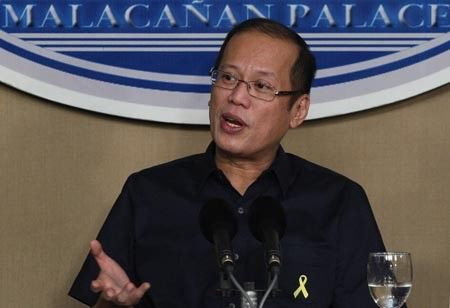South China Sea: Philippines Says Won't Give Away That Which Is Rightfully Theirs

The Philippine President, Benigno Aquino III, said on Monday that he will not give away what rightfully constitutes a part of his country in the territorial dispute with China, adding that Filipino troops will expand their military capabilities as a defense measure, although Manila isn't preparing for a fight.
Addressing the South China Sea dispute during his annual state of the nation speech to the Congress, which closely followed China's decision to station troops on a disputed island in the South China Sea, Aquino said: If someone entered your yard and told you he owned it, would you agree? Would it be right to give away that which is rightfully ours?
The Chinese military command will be based in Sansha City on Woody Island in the Paracels. The city was established on June 21 in an area under the Chinese jurisdiction, which is also claimed by Vietnam.
The garrison was approved as 1,100 Chinese residents elected 45 legislators Sunday to the new city's Congress.
Delivering the address in the presence of lawmakers and top government officials, including the Chinese Ambassador to the Philippines, Ma Keqing, Aquino urged the Filipinos to have one voice in fighting for the Philippine sovereignty over Bajo de Masinloc (Panatag Shoal or the Scarborough Shoal) which is claimed by the Philippines as well as China.
The situation in Bajo de Masinloc has been the source of much discussion. Chinese fishermen entered out territory. Our patrol boats intercepted some of their ships, which contain endangered species, Aquino was quoted saying by the Manila Bulletin.
I do not think it excessive to ask that our rights be respected, just as we respect their rights as a fellow nation in a world we need to share, he said.
He said the maritime tensions with Beijing don't offer simple solutions.
This is not a simple situation, and there can be no simple solutions. Rest assured: we are consulting experts, every leader of our nation, our allies-even those on the other side-to find a resolution that is acceptable to all, Aquino said.
Vietnam has also slammed the establishment of Sansha, calling it a serious violation of Hanoi's sovereignty over the Paracel and Spratly chains.
The Philippines and Vietnam, which were involved in a dispute with China recently over the ownership of the Scarborough Shoal, have been seeking the support of the Association of Southeast Asian Nations, or ASEAN, in pressurizing Beijing to accept the code of conduct.
China lays claim to almost the entire South China Sea, including what is recognized by the U.N. as the Exclusive Economic Zone of other neighbors, and would rather deal with each nation with which it has maritime tensions individually than confront the 10-member bloc.
ASEAN failed to reach a common ground over the South China Sea dispute, and for the first time in its 45-year history, the bloc failed to produce a joint statement at a regional summit in Cambodia last week.
Though the disagreement was attributed to overlapping claims of the Philippines, Vietnam, Brunei and Malaysia on certain parts of the South China Sea, it also exposed how the Chinese pressure has polarized regional politics.
The ASEAN chair, Cambodia, which relies on China for billions of dollars in financial assistance, is believed to be under tremendous pressure from Beijing and had rejected a proposal by the Philippines and Vietnam to mention their territorial disputes with China in the group statement.
A report published Tuesday by the International Crisis Group on the South China Sea dispute said that the claimants are all anxious to pursue oil and gas exploration in the portions of the sea that they claim, and are concerned with protecting their claimed fishing grounds as coastal waters become depleted.
Further complicating matters, control over resources in the sea is a nationalist issue for all claimants, making it more difficult for governments to de-escalate incidents and restricting their ability to cooperate on initiatives that could lessen tensions. Among those in South East Asia, the Vietnamese government is under the most domestic pressure to defend the country's territorial claims against China.
The report said an increasing number of civilian vessels patrolling disputed waters present a greater potential for conflicts rather than the potential skirmishes between the navies.
A Chinese warship ran aground on July 11 in disputed waters off the Philippine coast while on a security patrol, but managed to extricate itself within four days, averting fears of another maritime standoff between Beijing and Manila. Manila had sent two of its navy vessels and a reconnaissance aircraft to the Half Moon Shoal, about 170 kilometers off the western Philippine island of Palawan, after the Chinese ships were spotted in the area.
The last time an armed confrontation took place in the region was in 1988, when the Chinese and Vietnamese forces fought over the Johnson South Reef in the Spratly Islands.
© Copyright IBTimes 2024. All rights reserved.





















